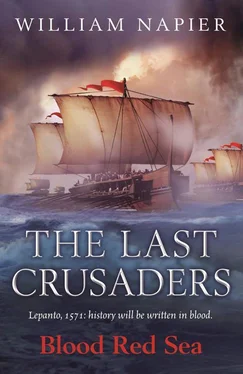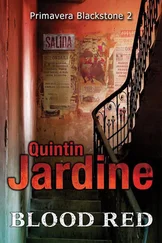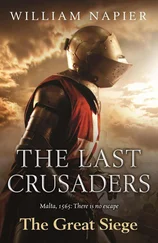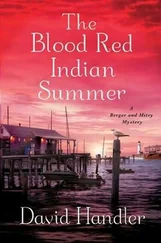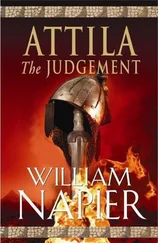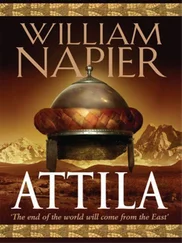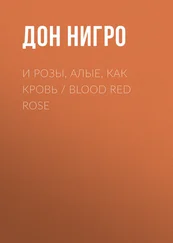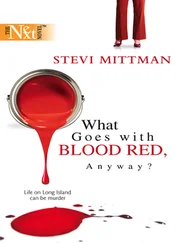William Napier - Blood Red Sea
Здесь есть возможность читать онлайн «William Napier - Blood Red Sea» весь текст электронной книги совершенно бесплатно (целиком полную версию без сокращений). В некоторых случаях можно слушать аудио, скачать через торрент в формате fb2 и присутствует краткое содержание. Жанр: Исторические приключения, на английском языке. Описание произведения, (предисловие) а так же отзывы посетителей доступны на портале библиотеки ЛибКат.
- Название:Blood Red Sea
- Автор:
- Жанр:
- Год:неизвестен
- ISBN:нет данных
- Рейтинг книги:4 / 5. Голосов: 1
-
Избранное:Добавить в избранное
- Отзывы:
-
Ваша оценка:
- 80
- 1
- 2
- 3
- 4
- 5
Blood Red Sea: краткое содержание, описание и аннотация
Предлагаем к чтению аннотацию, описание, краткое содержание или предисловие (зависит от того, что написал сам автор книги «Blood Red Sea»). Если вы не нашли необходимую информацию о книге — напишите в комментариях, мы постараемся отыскать её.
Blood Red Sea — читать онлайн бесплатно полную книгу (весь текст) целиком
Ниже представлен текст книги, разбитый по страницам. Система сохранения места последней прочитанной страницы, позволяет с удобством читать онлайн бесплатно книгу «Blood Red Sea», без необходимости каждый раз заново искать на чём Вы остановились. Поставьте закладку, и сможете в любой момент перейти на страницу, на которой закончили чтение.
Интервал:
Закладка:
‘As you know,’ said Sokollu, ‘I have long argued for a continued land assault on Christendom, through Hungary, Austria, the Danube valley. Our Janizaries are the finest infantry in the world. Even the Christians acknowledge it. But it seems fate has offered us another chance of victory in the Mediterranean.
‘Yet we must wait. Three dangers remain on our flanks, as we look west.’ He moved a long, lean forefinger over the maps. ‘To the east, the Persians are and always will be our enemies, until the blessed day when Allah gives us victory over them. But this victory will not come soon. The Shia rebels in the mountains of Yemen also remain in revolt against us — stirred up by Persia, I have no doubt. And to the north, the Grand Duchy of Muscovy grows ever greater in power. Her ruler, Ivan, with ludicrous presumption, even calls himself Caesar, or Czar in his barbarous tongue. There is no Caesar but Selim.
‘We must strangle this new Christian power at birth, or she will grow ever stronger, a constant threat to our northern border. Her potential empire is all of Scythia. We landed forces at Astrakhan, but. . the campaign was a difficult one, and we were obliged to change course. Instead our trusted ally, the Khan of the Crimea, is even now riding north with his Tatars, carrying the finest Ottoman muskets, arquebuses and guns. He will raze this upstart city of Muscovy to the ground.
‘Then, having secured our borders to our satisfaction, all our strength may be turned upon the Inland Sea, and the push west. A Jihad fil-bahr : a Jihad of the Sea. We will take back Cyprus, then the Adriatic coast. Already our galleys rule that sea, and Venice does not stir. We also possess the vital port of Avlona, ruled over by our dear friend, the Black Priest, Kara Hodja.’
Muezzinzade smiled grimly. The renegade Dominican friar, Kara Hodja: corsair, cut-throat, and now Bey of Avlona. His reputation was so terrible it caused almost as much anxiety to his Ottoman overlords as did the Christians.
‘We will take the squabbling city states of Italy piece by piece. Even Venice, and the Papal States.’
‘And Malta,’ said Muezzinzade. The very name was like a dark stone dropped into water.
Sokollu’s expression was unreadable. ‘Yes. This time we will finish it.’
Muezzinzade shifted in his seat. ‘Grand Vizier, I have heard it said — and I do not wish to believe it — that as we sow discord among our enemies, so they sow discord among us. The work is done especially by agents of the Knights of St John. They seek to harass and weaken us by working in Russia, they have fomented rebellion in the Yemen, they even send secret embassies to the Sultanate of Morocco, encouraging the Moors to view us as enemies.’
‘Rumours fly faster than facts,’ said Sokollu tersely. ‘Because they are light and insubstantial. The Christians do not have that kind of intelligence.’
‘And the Grand Master in Malta,’ persisted Muezzinzade, ‘Jean de la Valette, sold his Order’s lands in Cyprus just before his death. As if he knew of our coming invasion.’
‘Mere chance. His beloved Malta will fall soon. And Morocco is our Muslim brother and ally now. Remember that in ports such as Larache and Rabat, Sultan Abdallah possesses harbours which face not east, but west: out across the Atlantic, where a whole new world lies. From the Moroccan shore, they hear the cries of their oppressed brethren, the Moriscos, in the lost Berber kingdom of Andalus. And to sharpen the insult, they see an endless stream of Spanish treasure ships returning from the New World. The trade winds carry them from Havana to Cadiz in little more than twenty days, laden with all the silver of the inexhaustible mines of Potosi.
‘Which brings us to the greatest prize of all.’ Sokollu spread his fingers wide over another map. ‘Spain. And her vast new territories in the Americas.’
Here Piri Reis had truly excelled himself, showing the coast of Europe, Africa and the Americas enclosing the mighty Atlantic Ocean. Upon the coast of Brazil there were images in pen and ink of elegant beasts and fowl, and also men with their faces in their chests. Piri Reis himself did not credit such far-fetched travellers’ tales, but they made for amusing illustrations.
‘With this unimaginable wealth,’ said Muezzinzade, his eyes roaming over the Americas as if he could devour them, ‘we will reign over earth and sea.’
Sokollu said, ‘Do you not feel the force of destiny?’
Muezzinzade nodded, slow and solemn. ‘Yet if all the kingdoms of Christendom were to stand together against us — the powers of Spain and Portugal, the superb soldiery of the German princes, French chivalry, the armies of the Papacy, the vast resources of Genoa and Venice-’
‘Perhaps aided by some small contribution,’ Sokollu interrupted sarcastically, ‘by that rain-lashed little island, England, ruled over by a woman . .’
Muezzinzade smiled.
Sokollu waved his hand. ‘Perhaps then the Sublime Porte might have something to fear. But it will not happen. The Christian princes fight amongst each other like scorpions in a sack.
‘The French hate the Habsburgs. The Genoese and Venetians hate and mistrust each other. And that is only the Catholics. Germany and the Netherlands are riven by Protestant rebellion, France massacres its own Protestants, England begins to persecute its Catholics. Christendom is now in a permanent state of low-level war with itself. It would take some man of genius to unite her. Yet’ — he reached out for the fruit bowl — ‘the hour is come, but not the man. Christendom is a fruit close to rottenness, and overripe for picking.’
He pulled a grape from the stalk and crushed it between his teeth.
Part I
1
The sun burned white in a cloudless sky, and spangles of sunlight danced on the placid sea. Occasionally dolphins broke the surface, their oilskin flanks darkly gleaming, before curving back into the green silence below. Away to the south, on the distant horizon, the sky was a dusty ochre over the burning deserts of Africa.
Tiny fluttering shapes of flying fish skimmed over the small waves, disturbed by a long dark shadow cutting through the water behind them. And the clean sea air suddenly soured with the stench of a Barbary slaver.
It was a low-slung black galley with a single mast, little more than a brigantine. The wind was so light the sail was furled. Fast, light and nimble, made for lightning raids on sleepy villages and lumbering merchantmen. A hawk of the sea.
They said you could smell the stench of a slave galley a mile away, and a downwind gust from this one would surely make any man tighten stomach and craw as he fought the urge to vomit. It was the stench of fifty men chained and rowing under the lash, the bilge water around their rotting feet a stew of salt water, urine and faeces. For slaves like these lived on the rowing bench until they died. But it was also the stench of permanent exhaustion, and despair so deep that death was all they longed for.
The Barbary slaver was some sixty feet in length and carried a single centre-line gun at the bow. Her primary armaments were the crew of twenty or so corsairs who lounged at the stern under the sun-blanched canopy, naked to the waist, flashing teeth and eyes, hooped gold earrings and elaborate henna tattoos. And armed with every variety of knife and dagger, mace and club, scimitar and half-pike imaginable.
One or two scanned the horizon from east to west, keen eyed and hungry for carrion. The rest diced or dozed, chewed qat or smoked kif. Other than men, the slaver — her name was the Sweet Rose of Algiers , without apparent irony — carried nothing more but the ballast of pebbles below, and the captain’s chest, an iron-bound treasury of gold and silver coins of every nation: Spanish escudos, Venetian ducats, Ottoman akçes, as well as a pair of bejewelled crucifixes they had looted from a little chapel on the coast of Sardinia. There was also, in a small velvet pouch, the dainty curio of a sun-dried nose, sliced from the face of a Sicilian nun they had captured onshore a few weeks ago and taken with them for a while. Eventually they had tired of raping her and tumbled her over the side.
Читать дальшеИнтервал:
Закладка:
Похожие книги на «Blood Red Sea»
Представляем Вашему вниманию похожие книги на «Blood Red Sea» списком для выбора. Мы отобрали схожую по названию и смыслу литературу в надежде предоставить читателям больше вариантов отыскать новые, интересные, ещё непрочитанные произведения.
Обсуждение, отзывы о книге «Blood Red Sea» и просто собственные мнения читателей. Оставьте ваши комментарии, напишите, что Вы думаете о произведении, его смысле или главных героях. Укажите что конкретно понравилось, а что нет, и почему Вы так считаете.
